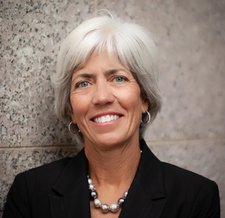
Evie Liu
Dec. 14, 2020
The Covid-19 pandemic has changed how things work in many lines of businesses, and financial advisors are no exception. As advisors spend more time talking with clients remotely from home, the long-term impact on the industry might reach much beyond just physical distance.
At this week’s Morningstar Investment Conference, which itself is completely digital this year, three panelists offered some insight into what the advisory industry might look like in the next decade.

Cathy Curtis, a financial advisor based in Oakland, Calif., has been working from her home office since the pandemic started and taught many of her clients how to use Zoom. “They love it,” she says. “Even if my older clients, they are thrilled after they figure it out. They don’t have to travel. They can see my desktop just as well, if I’m sharing documents—maybe sometimes even easier.”
While many smaller, independent advisors like Curtis had a home office even before the pandemic, the larger firms that were traditionally more bound to an office environment are being forced to adopt new technologies to make the shift. That not only allows them to have a more flexible and remote workforce, but also opens up opportunities to serve a wider range of clients, says Alan Moore, co-founder of the XY Planning Network, a nationwide group focused on Generation X and Generation Y clients.
Meeting in person is still important in establishing a relationship with clients, says Don Phillips, a managing director at Morningstar, but electronic meetings are going to play an important role in the future. “It allows for more frequent, shorter meetings, which is actually healthy in developing a long-term relationship,” he says, “You aren’t going to drive an hour to your advisor’s office for a 15-minute meeting and then drive another hour back, but a 15-minute Zoom call every six weeks could be very convenient.”
Another trend in the advisory industry is the increasing specialization of practices. “Investing is the art of matching the investment with the investor. The more you know about the investor, the more focused you are, the more value you can add to that equation,” says Phillips.
Moore points to one advisor at the XY Planning Network who focuses on women who work at pre-IPO tech companies.
“She knows more about stock-option plans and employee-compensation plans than anyone I know. But she also knows what it means to be a woman in tech in a mostly male-dominated industry,” says Moore, “She has some 60 to 70 clients that really couldn’t find another advisor who understood their unique circumstances and speaks their languages.”
While some might worry that targeting a niche market means narrowing the potential client pool and hurting business, Curtis, who focuses on serving independent, single, female breadwinners, views it differently. “My brand, my messaging, and my outreach appeals to them and I’ve been able to create a service model to help those kinds of clients,” she says, “I don’t think I’d be where I am right now if I didn’t have a niche.”
The remote work environment will likely accelerate this development, allowing advisors to stay focused on their niche market and ideal clients, whether they live near their office or not. “We believe this is the future of the industry, and advisors can ultimately hold off competition in their unique space,” says Moore.
With the increasing popularity of index funds and robo-advisors, there have also been many discussions about the value of human advisors and how much they should charge for the service. As mutual fund fees spent years heading lower, some think the advisory industry might be the next.
Traditionally, people who seek financial advice tend to be wealthier and mostly white. Robo-advisors can fill some of the gap for those who can’t afford personal advice. But the industry will also need to diversify its fee structure to engage the wider American public with diverse demographic backgrounds and income levels, says Moore. Already, instead of the traditional asset-based fee structure, firms like XY Planning Network are experimenting with new business models such as monthly subscriptions or project-based flat fees.
The panelists agree that in the next decade, the focus of the advisory industry might see a shift from investment management to more holistic financial planning—helping clients fulfill their financial goals, stay true to their personal values, and ultimately live a rich life. That’s something hard for computers and robots to do without proper human-to-human conversations.
While it’s been hard lately to find good investment ideas and beat the market, there is a lot of room to add value on the tax and estate-planning side, says Morningstar’s Phillips, especially given the recent shifts in tax policies from the Obama era to the Trump administration, and possibly again after November’s election. “How you navigate this is going to be much more important than the investment decisions you make,” he says.
For example, some young doctors have very high income, says Moore, but a lot of loan debt and little savings; many women in tech, on the other hand, might have an immense amount of net worth in stock options that aren’t liquid and investible. All these situations need to be managed with careful consideration.
Many investors today also want to make sure their investments are in line with their values, making sustainable investing—often focused on environmental, social, and governance, or ESG, factors—another big part of financial advisors’ job.
“It’s entirely possible to build your whole investment philosophy as an advisor around ESG,” says Curtis, who plans to do just that, “This is another way to niche yourself and differentiate in the marketplace.”
This Barron's article was legally licensed by AdvisorStream.
Copyright 2020 Dow Jones & Company, Inc. All Rights Reserved.



